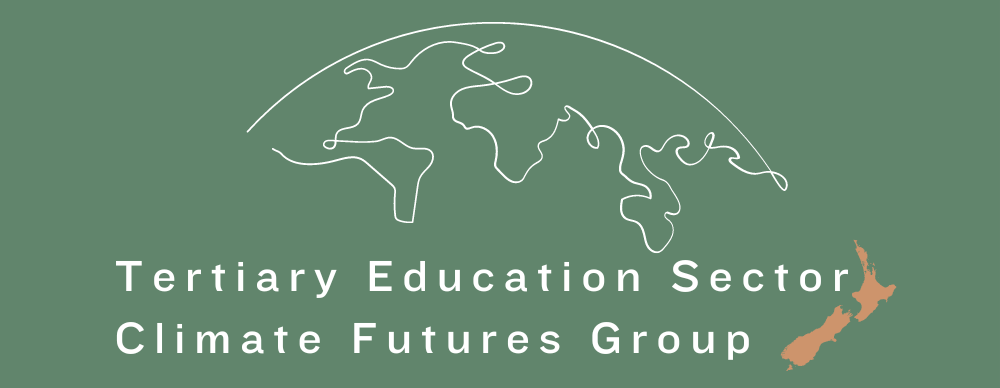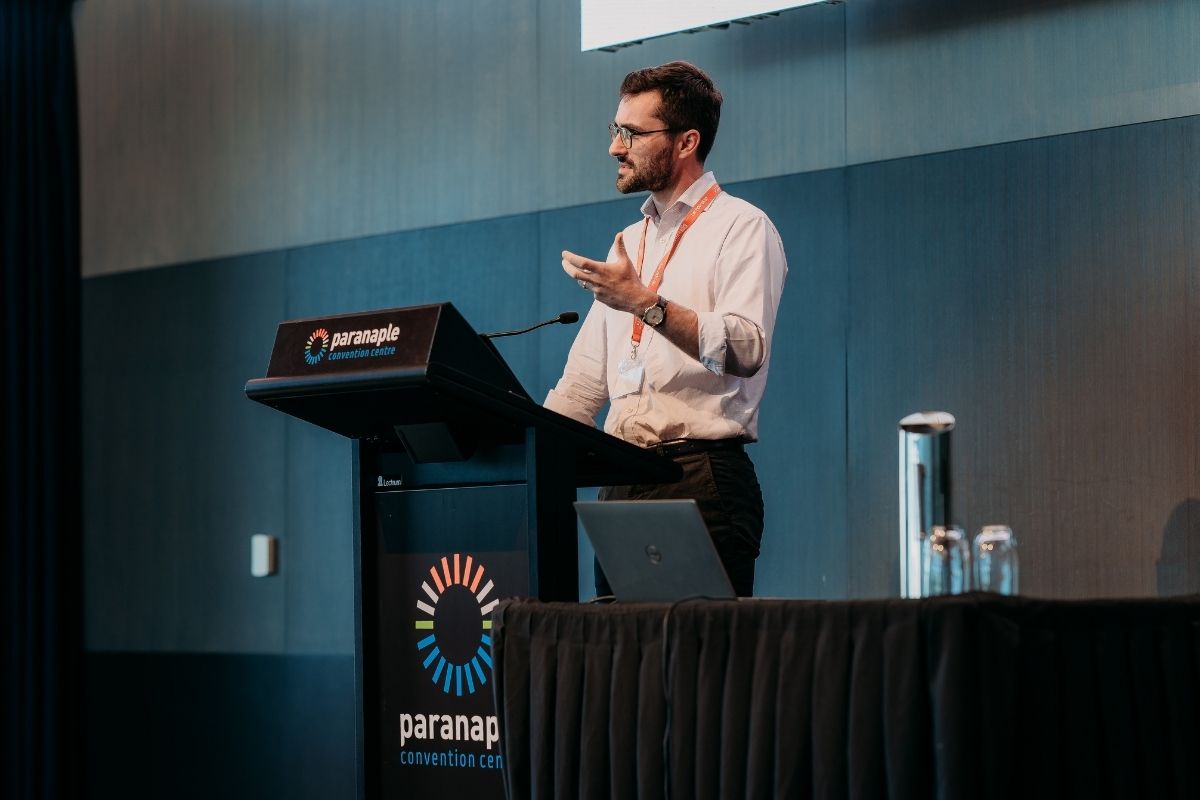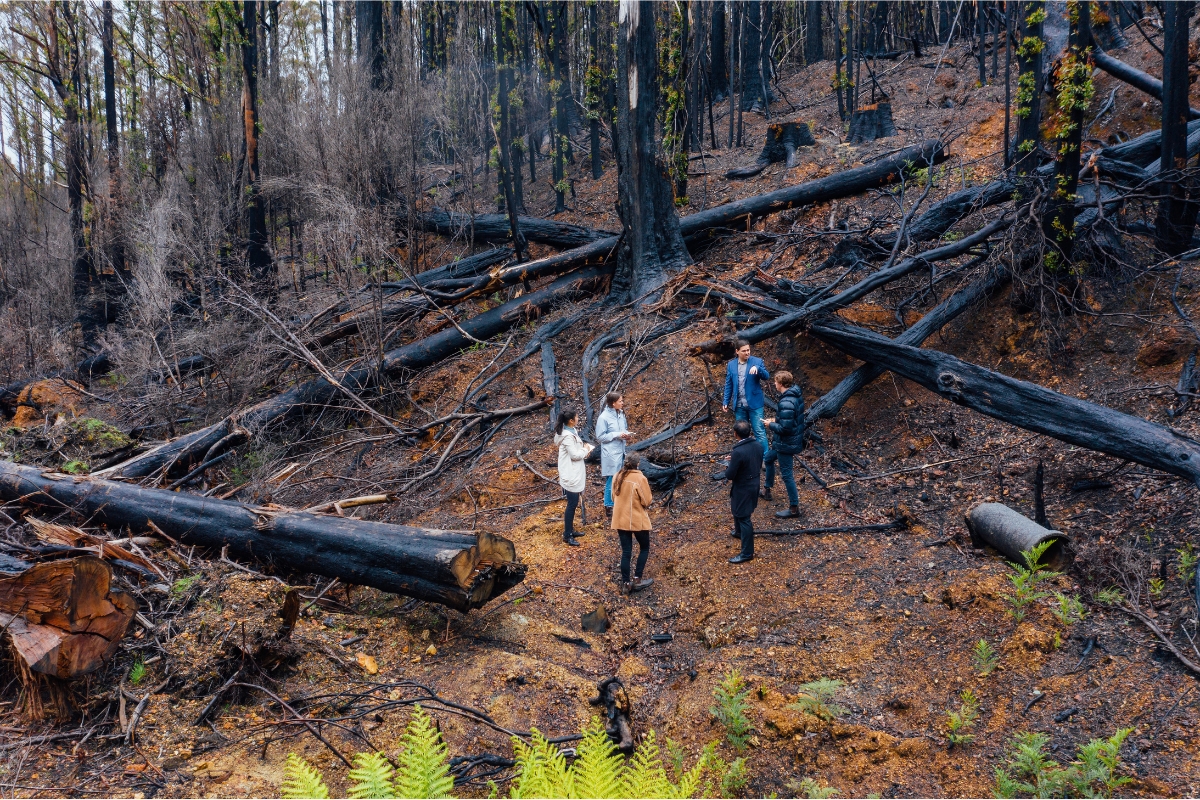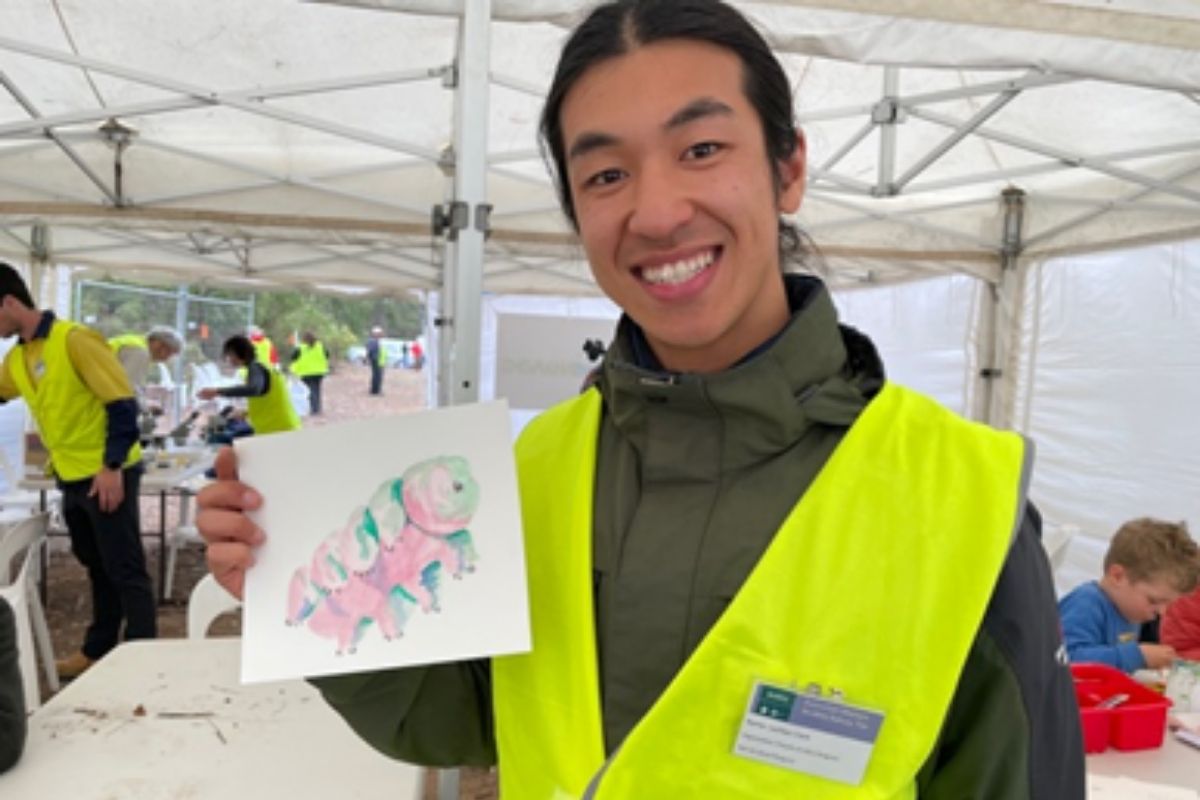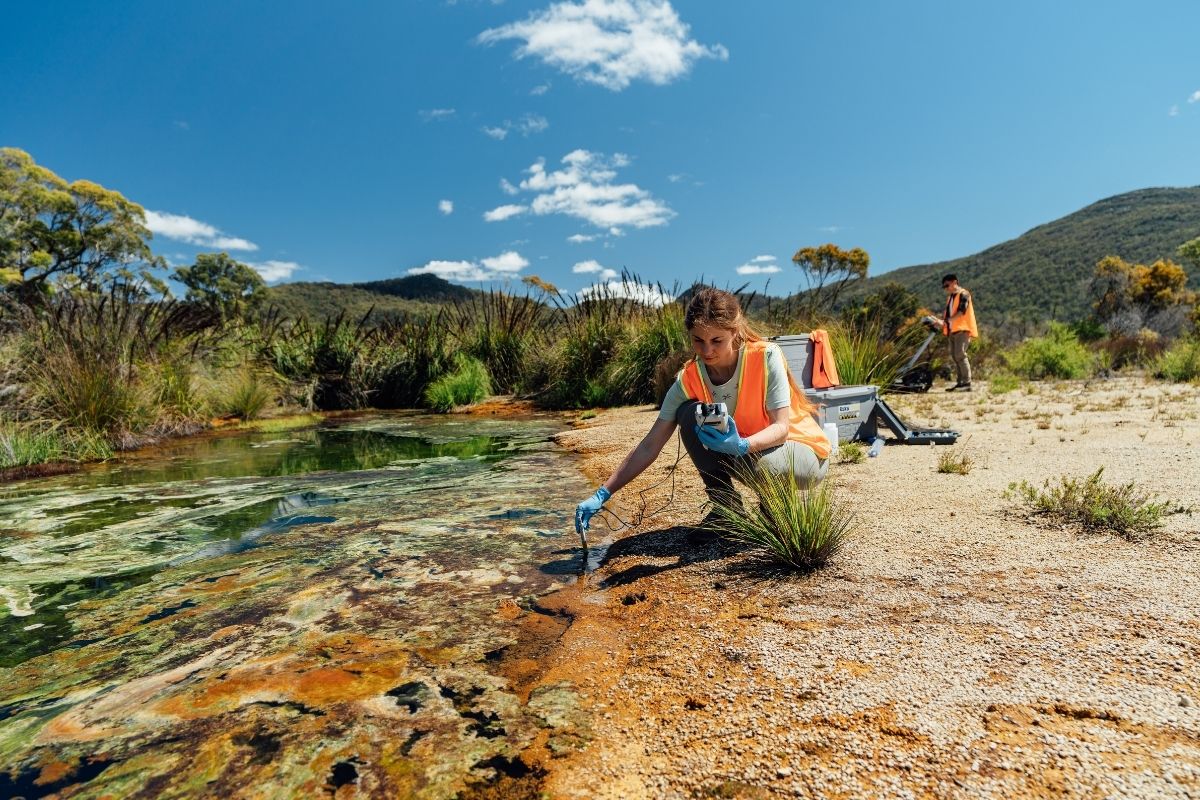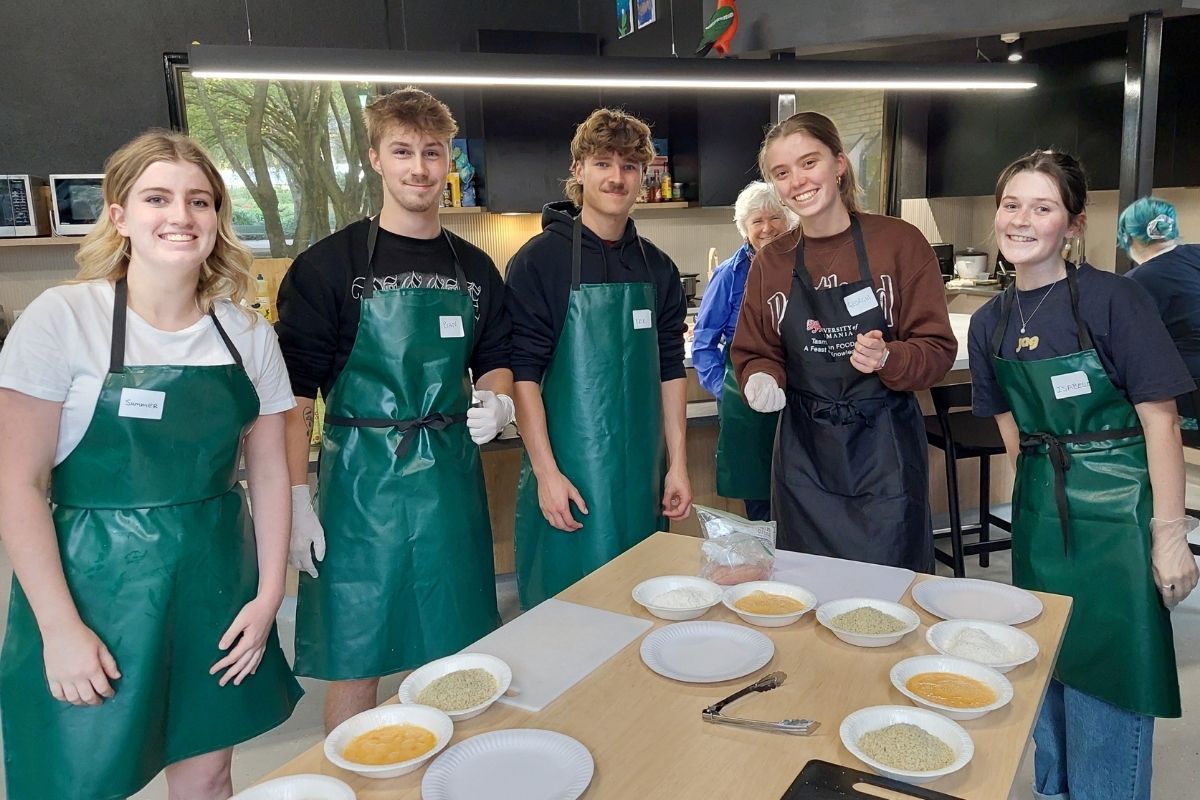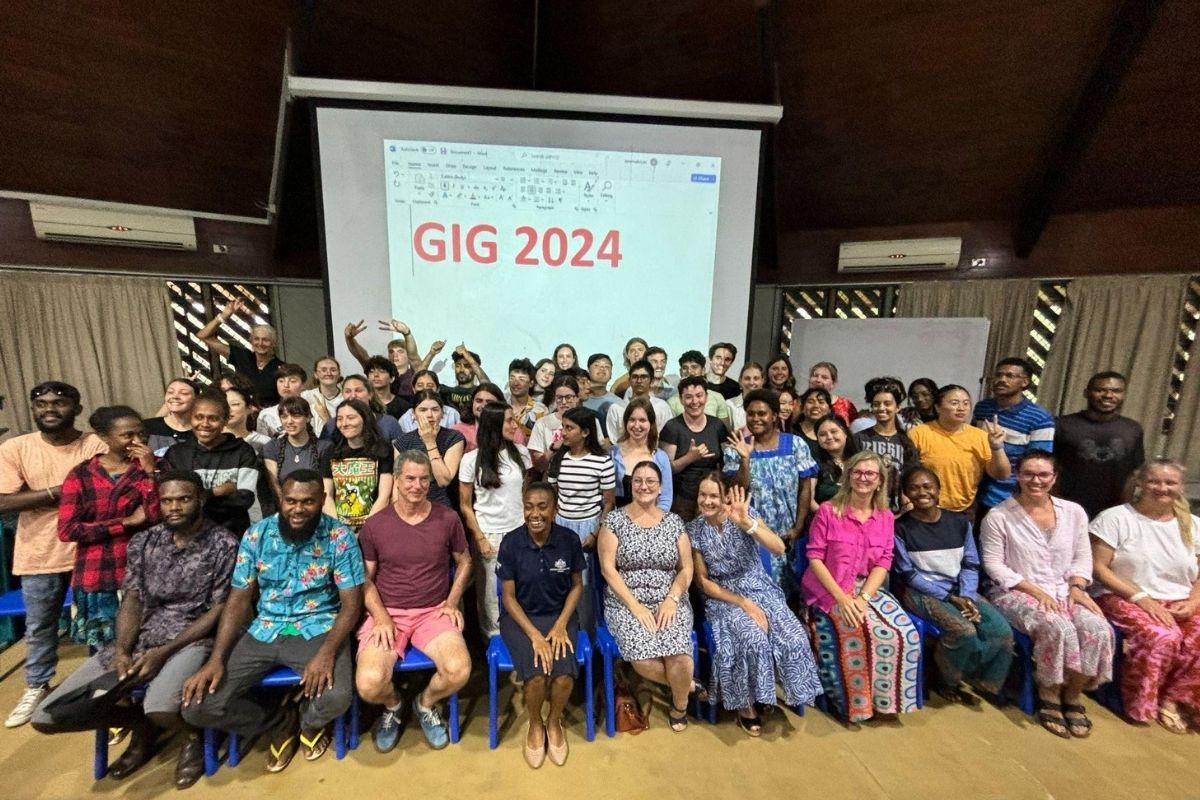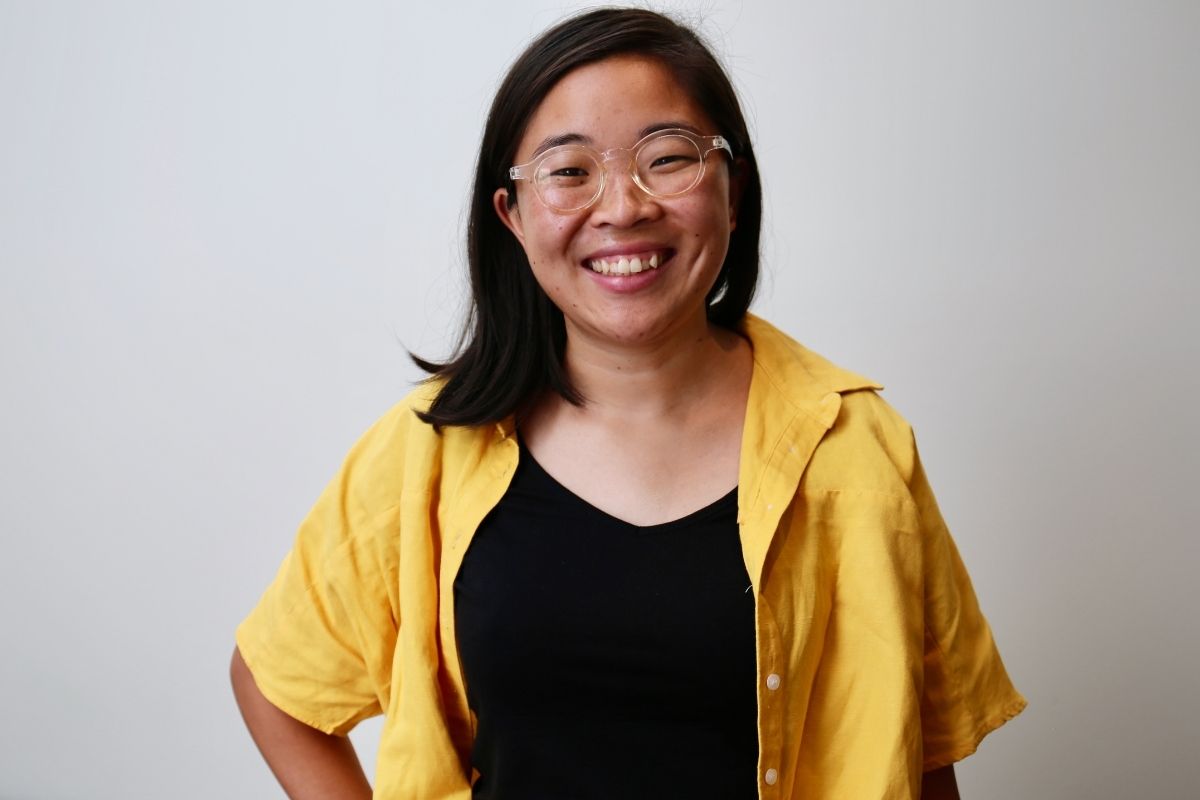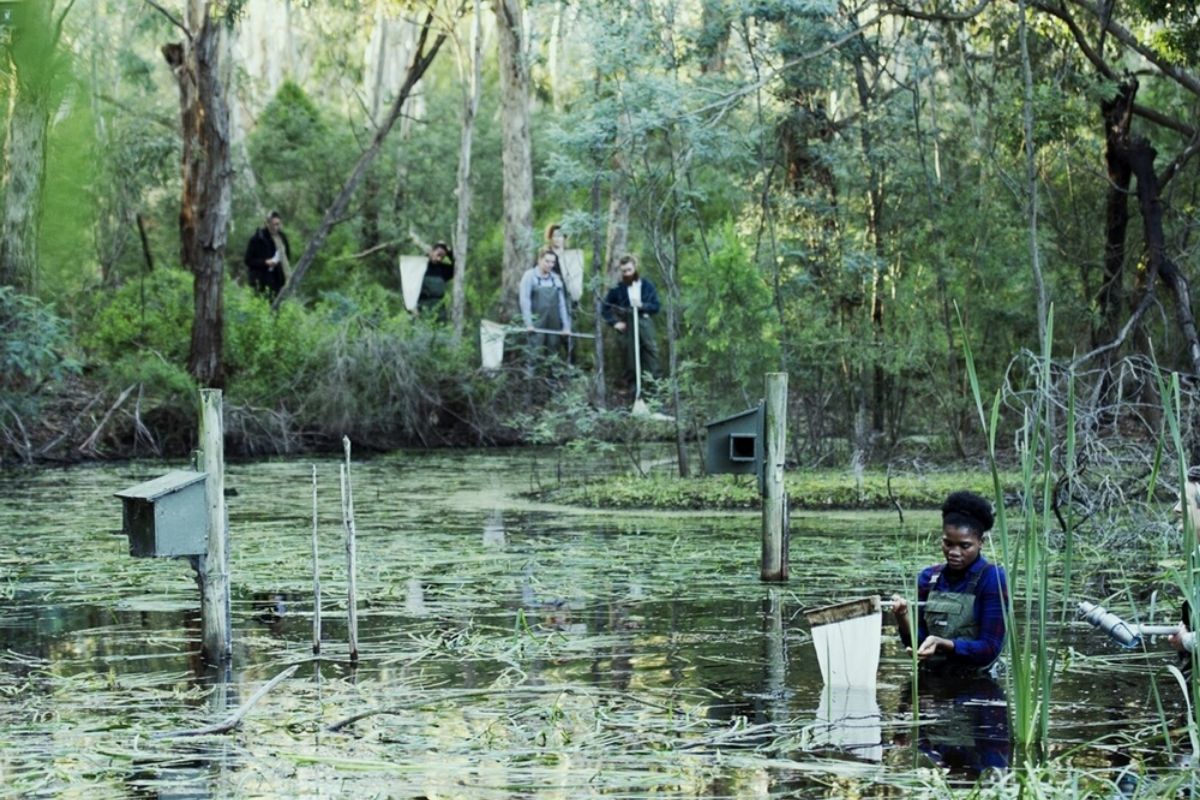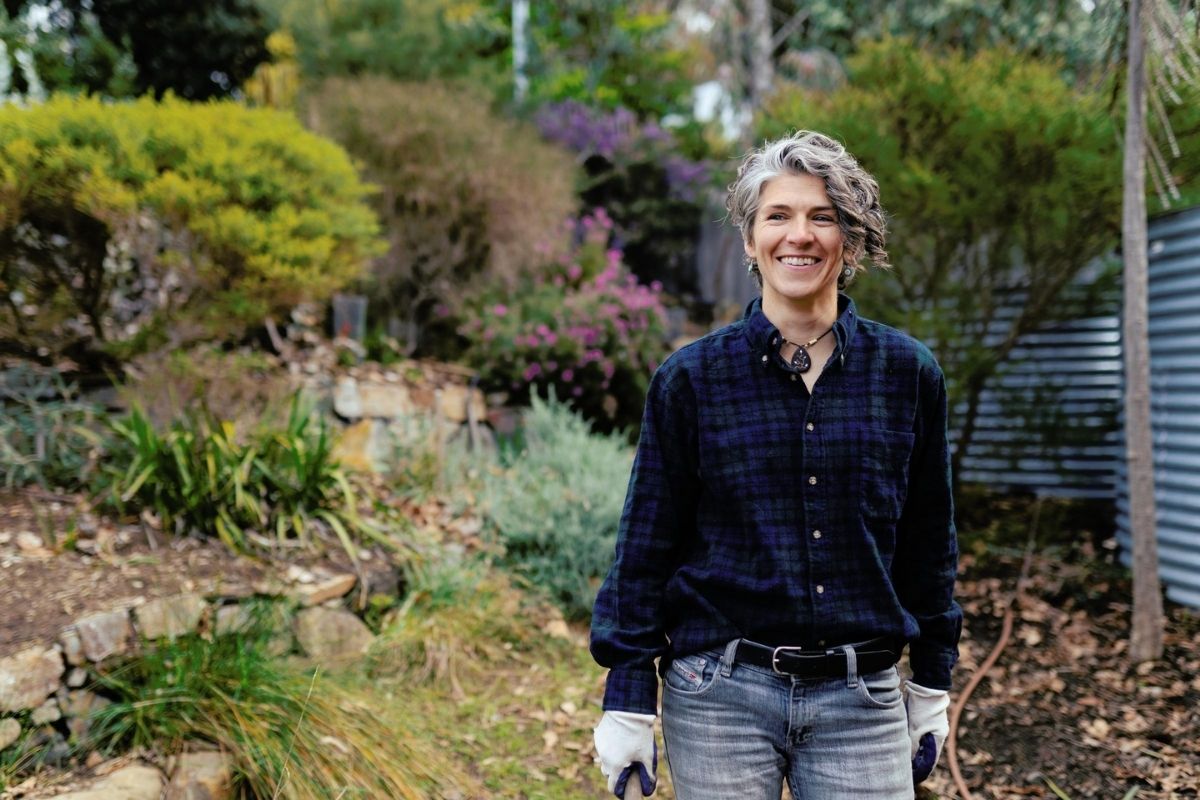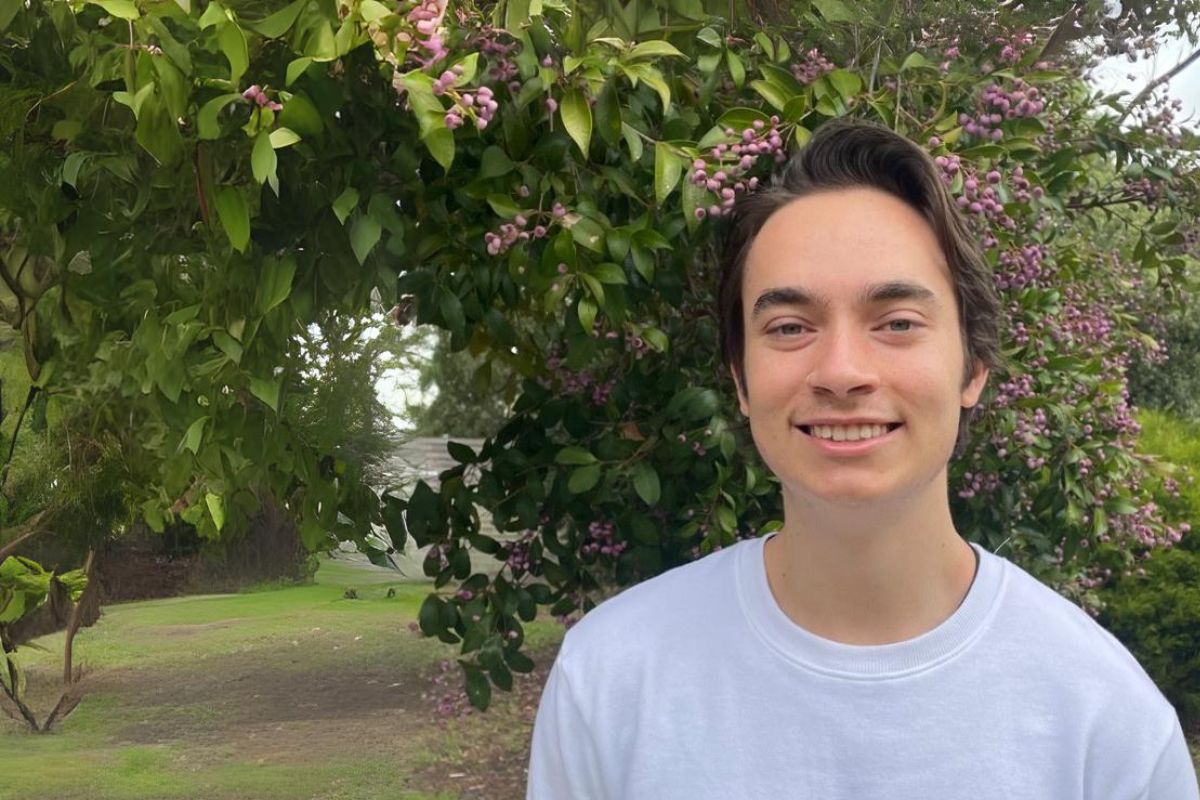Powerful Partnerships/Winners category
The Tertiary Education Sector Climate Futures Group (TESCFG), encompassing all universities, Wānanga, and Te Pūkenga (Institute of Skills and Technology) in Aotearoa New Zealand, launched the “From Sweet As to Oh Bugger – Sector-wide Climate Scenarios” initiative. This groundbreaking project, initiated in 2023, aimed to collaboratively assess how climate change will impact the tertiary education sector in New Zealand by 2100. The project culminated in a comprehensive report published in 2024, which presents four detailed climate scenarios. These scenarios provide a flexible framework for tertiary institutions to guide their climate adaptation planning, ensuring a consistent approach across the sector while allowing for customisation to individual needs.
“Developing the climate scenarios was a truly collaborative effort across all the participating institutions. Winning this Green Gown Australasia Award is a wonderful acknowledgement of the mahi involved in getting the whole sector to come together for the challenging, but critical, first step in developing our climate adaptation plans.”
Andrew Wilks, Project Lead, Tertiary Education Sector Climate Futures Group
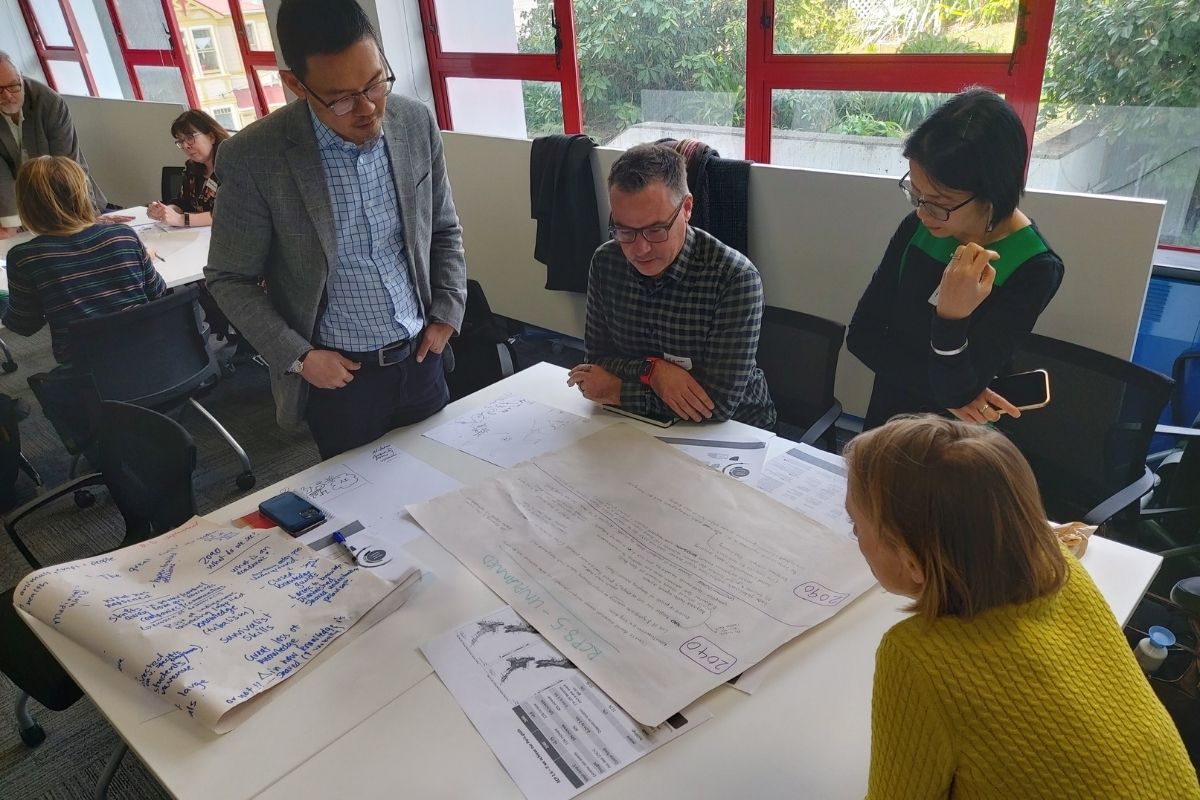
Environmental and Social Benefits
- Enhanced Climate Adaptation: The climate scenarios developed through this initiative enable institutions to anticipate and plan for various climate futures, thereby enhancing their resilience. By providing a sector-wide framework, the project supports institutions in prioritising environmental and social risks, ultimately reducing the sector’s vulnerability to climate change.
- Sector-Wide Engagement: Over 100 stakeholders from diverse backgrounds participated in the workshops, including representatives from all tertiary institutions, government agencies, and industry experts. This broad engagement ensured that the scenarios were robust, inclusive, and reflective of the sector’s varied perspectives and needs.
- Social Awareness and Leadership: The initiative has raised awareness of climate change impacts within the tertiary sector and has driven a commitment to proactive planning and adaptation. This collective approach encourages leadership and accountability across the sector, setting a precedent for other industries.
Leadership and Engagement
- Collaborative Approach: The project is notable for being the first large-scale collaboration between all 12 publicly funded tertiary education institutions in New Zealand, including universities, Wānanga, and Te Pūkenga. This collaboration ensured that resources, expertise, and insights were shared across the sector, leading to a more unified and strategic approach to climate adaptation.
- In-House Expertise: The project utilised in-house expertise for leadership and facilitation, avoiding the need for external consultants and ensuring that the process was deeply rooted in the sector’s specific context and challenges. This approach not only reduced costs but also fostered a sense of ownership among the participating institutions.
- Nationwide Workshops: The initiative included two workshops conducted across five locations in New Zealand, using a regionally hybrid model that combined in-person gatherings with virtual connections. This format maximised participation while minimising carbon emissions from travel, reflecting the project’s commitment to sustainability.
Significance to the Sector
- Global Leadership: The TESCFG’s initiative is a global first in terms of its scale and scope, providing a model for other sectors and countries to follow. By focusing on the entire tertiary education sector, the project ensures that all institutions are working from a common understanding of climate risks, which is crucial for coordinated and effective action.
- Replicable Model: The project’s approach, which includes scenario development, stakeholder engagement, and the use of in-house expertise, is highly replicable. Other sectors can adopt this model to develop their own climate adaptation strategies, benefiting from the lessons learned in New Zealand’s tertiary education sector.
- Influence Beyond the Sector: The scenarios and the process used to develop them have already begun influencing other sectors, with the project team presenting their findings to an All-of-Government Sustainability Group. This demonstrates the broader relevance and applicability of the project’s outcomes.
Wider Societal Impact
- Resilient Education Sector: A resilient tertiary education sector is critical for New Zealand’s future, as it educates the country’s leaders, houses vast knowledge resources, and plays a statutory role in critiquing and guiding society. The scenarios developed through this initiative help to safeguard these functions against the impacts of climate change.
- Addressing Eco-Anxiety: By providing a clear framework for climate adaptation, the project helps to mitigate feelings of eco-anxiety and climate grief among students, staff, and the broader community. The proactive approach demonstrated by the tertiary sector can inspire confidence and reduce the psychological impacts of climate change.
- Sector-Wide Leadership: The initiative underscores the potential for closer partnerships between tertiary institutions and their communities, particularly in areas such as emergency response and civil defense. The scenarios highlight opportunities for tertiary institutions to play a more active role in supporting community resilience in the face of climate change.
The “From Sweet As to Oh Bugger – Sector-wide Climate Scenarios” initiative by the Tertiary Education Sector Climate Futures Group is a landmark project that exemplifies the power of collaboration and forward-thinking in addressing climate change. By bringing together all of New Zealand’s tertiary institutions to develop a unified climate adaptation strategy, the initiative not only enhances the sector’s resilience but also sets a global standard for climate planning in education. Its success demonstrates the importance of sector-wide leadership, the value of in-house expertise, and the impact of engaging diverse stakeholders in creating a sustainable future.
Top 3 learnings
Supported by

Category finalists
Sustainability Institution of the Year/Winners
Sustainability Institution of the Year/Winners
Powerful Partnerships
Powerful Partnerships
Climate Action/Winners
Climate Action/Winners
Creating Impact/Winners
Creating Impact/Winners
Next Generation Learning & Skills/Winners
Next Generation Learning & Skills/Winners
Student Engagement/Winners
Student Engagement/Winners
Diversity, Equity and Inclusion/Winners
Diversity, Equity and Inclusion/Winners
Nature Positive/Winners
Nature Positive/Winners
Staff Champion/Winners
Staff Champion/Winners
Student Champion/Winners
Student Champion/Winners
2023 winners
Benefitting Society/Winners
Benefitting Society/Winners
Diversity, Equity & Inclusion in Sustainability/Winners
Diversity, Equity & Inclusion in Sustainability/Winners
Climate Action/Winners
Climate Action/Winners
Sustainability Institution of the Year/Winners
Sustainability Institution of the Year/Winners
Creating Impact/Winners
Creating Impact/Winners
Creating Impact/Winners
Creating Impact/Winners
Top 3 learnings
Powerful Partnerships/Winners category
The Tertiary Education Sector Climate Futures Group (TESCFG), encompassing all universities, Wānanga, and Te Pūkenga (Institute of Skills and Technology) in Aotearoa New Zealand, launched the “From Sweet As to Oh Bugger – Sector-wide Climate Scenarios” initiative. This groundbreaking project, initiated in 2023, aimed to collaboratively assess how climate change will impact the tertiary education sector in New Zealand by 2100. The project culminated in a comprehensive report published in 2024, which presents four detailed climate scenarios. These scenarios provide a flexible framework for tertiary institutions to guide their climate adaptation planning, ensuring a consistent approach across the sector while allowing for customisation to individual needs.
“Developing the climate scenarios was a truly collaborative effort across all the participating institutions. Winning this Green Gown Australasia Award is a wonderful acknowledgement of the mahi involved in getting the whole sector to come together for the challenging, but critical, first step in developing our climate adaptation plans.”
Andrew Wilks, Project Lead, Tertiary Education Sector Climate Futures Group

Environmental and Social Benefits
- Enhanced Climate Adaptation: The climate scenarios developed through this initiative enable institutions to anticipate and plan for various climate futures, thereby enhancing their resilience. By providing a sector-wide framework, the project supports institutions in prioritising environmental and social risks, ultimately reducing the sector’s vulnerability to climate change.
- Sector-Wide Engagement: Over 100 stakeholders from diverse backgrounds participated in the workshops, including representatives from all tertiary institutions, government agencies, and industry experts. This broad engagement ensured that the scenarios were robust, inclusive, and reflective of the sector’s varied perspectives and needs.
- Social Awareness and Leadership: The initiative has raised awareness of climate change impacts within the tertiary sector and has driven a commitment to proactive planning and adaptation. This collective approach encourages leadership and accountability across the sector, setting a precedent for other industries.
Leadership and Engagement
- Collaborative Approach: The project is notable for being the first large-scale collaboration between all 12 publicly funded tertiary education institutions in New Zealand, including universities, Wānanga, and Te Pūkenga. This collaboration ensured that resources, expertise, and insights were shared across the sector, leading to a more unified and strategic approach to climate adaptation.
- In-House Expertise: The project utilised in-house expertise for leadership and facilitation, avoiding the need for external consultants and ensuring that the process was deeply rooted in the sector’s specific context and challenges. This approach not only reduced costs but also fostered a sense of ownership among the participating institutions.
- Nationwide Workshops: The initiative included two workshops conducted across five locations in New Zealand, using a regionally hybrid model that combined in-person gatherings with virtual connections. This format maximised participation while minimising carbon emissions from travel, reflecting the project’s commitment to sustainability.
Significance to the Sector
- Global Leadership: The TESCFG’s initiative is a global first in terms of its scale and scope, providing a model for other sectors and countries to follow. By focusing on the entire tertiary education sector, the project ensures that all institutions are working from a common understanding of climate risks, which is crucial for coordinated and effective action.
- Replicable Model: The project’s approach, which includes scenario development, stakeholder engagement, and the use of in-house expertise, is highly replicable. Other sectors can adopt this model to develop their own climate adaptation strategies, benefiting from the lessons learned in New Zealand’s tertiary education sector.
- Influence Beyond the Sector: The scenarios and the process used to develop them have already begun influencing other sectors, with the project team presenting their findings to an All-of-Government Sustainability Group. This demonstrates the broader relevance and applicability of the project’s outcomes.
Wider Societal Impact
- Resilient Education Sector: A resilient tertiary education sector is critical for New Zealand’s future, as it educates the country’s leaders, houses vast knowledge resources, and plays a statutory role in critiquing and guiding society. The scenarios developed through this initiative help to safeguard these functions against the impacts of climate change.
- Addressing Eco-Anxiety: By providing a clear framework for climate adaptation, the project helps to mitigate feelings of eco-anxiety and climate grief among students, staff, and the broader community. The proactive approach demonstrated by the tertiary sector can inspire confidence and reduce the psychological impacts of climate change.
- Sector-Wide Leadership: The initiative underscores the potential for closer partnerships between tertiary institutions and their communities, particularly in areas such as emergency response and civil defense. The scenarios highlight opportunities for tertiary institutions to play a more active role in supporting community resilience in the face of climate change.
The “From Sweet As to Oh Bugger – Sector-wide Climate Scenarios” initiative by the Tertiary Education Sector Climate Futures Group is a landmark project that exemplifies the power of collaboration and forward-thinking in addressing climate change. By bringing together all of New Zealand’s tertiary institutions to develop a unified climate adaptation strategy, the initiative not only enhances the sector’s resilience but also sets a global standard for climate planning in education. Its success demonstrates the importance of sector-wide leadership, the value of in-house expertise, and the impact of engaging diverse stakeholders in creating a sustainable future.
Supported by

Related finalists
Sustainability Institution of the Year/Winners
Sustainability Institution of the Year/Winners
Powerful Partnerships
Powerful Partnerships
Climate Action/Winners
Climate Action/Winners
Creating Impact/Winners
Creating Impact/Winners
Next Generation Learning & Skills/Winners
Next Generation Learning & Skills/Winners
Student Engagement/Winners
Student Engagement/Winners
Diversity, Equity and Inclusion/Winners
Diversity, Equity and Inclusion/Winners
Nature Positive/Winners
Nature Positive/Winners
Staff Champion/Winners
Staff Champion/Winners
Student Champion/Winners
Student Champion/Winners
Other finalists
Climate Action

Driving Towards Tomorrow’s Campus with Vehicle-to-Grid EV Technology
As part of Flinders University’s drive to innovate and become a leader in climate action, the University launched its Vehicle-to-Grid (V2G) initiative. This involved installing and maintaining 20x V2G and smart chargers for its growing electric vehicle fleet. Leveraging 100% renewable energy generated by ENGIE’s Willogoleche Wind Farm and Flinders University’s solar power systems, this enables the storage of renewable energy in EV batteries to be discharged on campus during peak demand periods. Hence, allows for these EV fleets to operate as a Virtual Power Plant (VPP) to deliver peak demand management and optimization of behind-the-meter generation.
Overall, this initiative demonstrates the reliability and scalability of bi-directional and uni-directional smart-charging systems for EVs in reducing GHG emissions while facilitating teaching, research, and innovation opportunities. Moreover, it exemplifies a sustainable and innovative solution to scale energy storage technology and increase renewables.
Sustainability Champion – Staff/Winners

Brandan Espe
Environmental Officer / Acting Grounds Supervisor
Brandan has brought over 50 federally listed Endangered species of plant into the James Cook University living collection, many of which have never been cultivated and are found in no other collection in the world.
Of these, over half have been sustainably wild collected, inclusive of field and clone data, so they can be used for ongoing conservation, research and teaching, the remaining being sourced from private and partner organisations through favours of service or trades.
He personally funded the project from 2019-2022, until funding was awarded for the program due to its success, with the program now being engrained into the Universities landscapes for ongoing management should he leave JCU, creating a threatened species legacy collection.
The program has now expanded beyond this, with an additional 48 species now funded for further addition, some of which are only known from less than 5 sightings in history.
Student Engagement

Sustainability Leaders creating real impact!
La Trobe created a unique Sustainability Leaders volunteering program to increase engagement with students on campus and empower them to act against waste and promote sustainability. It included the following initiatives:
- Promoting the reusable crockery implementation,
- Increasing knowledge action of other students on campus to diversion comingled recycling and organic waste from landfill.
- Focus on waste audits and data,
- Improved signage through new waste posters for students living on campus.
- Collaboration with Cirka (our cleaning and waste partner) to create a waste wall and;
- Learning all things sustainability (net zero, biodiversity, waste, reusables, engagement)
These initiatives yielded significant results and with a reduction in waste contamination by almost 40% at the residential buildings and engagement with over 80 groups of people for the Reusable Revolution.
Creating Impact

Where knowledge meets habits: Empowering students for a sustainable tomorrow
Our online Sustainability Challenges offer participants an engaging, self-paced learning experience centered around a specific United Nations Sustainable Development Goal (UNSDG). Requiring minimal resourcing and at zero-cost to participants, we’ve created replicable, compact, scalable, and impactful learning opportunities that result in real impact.
The Challenges follow a structured process that moves participants from knowledge gain to simple action to celebration, to establish small but mighty habits relating to waste and carbon emissions. This approach recognises that knowledge alone is often insufficient to drive behaviour change, and that ease of action and celebration are crucial components in creating sustainable habits.
Sustainability Champion – Staff/Winners

Catherine (CeeJay) Donovan
Veterinary nurse – Anaesthesia
From establishing the Massey Vet School Green Team to leading impactful initiatives, my commitment to environmental sustainability has been making waves. With the help of my team, I have accomplished numerous small, yet meaningful actions, including integrating a sustainability lecture for final year vet students and implementing battery recycling alongside rechargeable battery use. Our larger projects encompass the introduction of green waste and soft plastics recycling bins, an energy audit resulting in power-saving measures, and playing a part in a successful rubbish audit. I spearheaded the ‘6 in 6’ campaign, empowering individuals with six simple steps for workplace sustainability. Through the SustainaVet social media pages I help to educate and inspire peers nationwide. As the Massey School of Veterinary Science sustainability champion, I had the privilege of speaking at the annual veterinary conference on sustainability in clinical practice. Currently I’m conducting pioneering research on responsible cat waste disposal. Together, we’re forging a greener future, one initiative at a time.
Sustainability Champion – Student

Louis Walmsley
SDG Coordinator Monash Association of Sustainability, Office Bearer Monash Student Association’s Environmental and Social Justice Department, Masters of Environment and Sustainability Student
Louis is an exceptional student sustainability leader at Monash University. His passion and dedication to sustainability have made a significant impact on the community. Louis’s values revolve around sustainability, which is evident upon meeting him. He actively participates in various sustainability groups, demonstrating his commitment to creating a more environmentally conscious society.
One of Louis’s notable involvements is with Precious Plastic Monash, where he organizes remarkable events and fosters collaboration among like-minded individuals, student groups, and staff. His contributions to the Monash Association of Sustainability have allowed him to conduct valuable research on plastic usage and climate action, resulting in positive changes within the university.
Through his work with the Monash Student Association, Louis has engaged hundreds of students in fun and interactive sustainability initiatives. He took the initiative to organize a sustainability food fair, which was one of the largest sustainability-related events held at Monash post-COVID. This accomplishment is a true testament to Louis’s hard work and creativity.
Louis is an outstanding student leader whose efforts in sustainability have had a lasting impact on Monash University and its community. His inspiring nature resonates with everyone who knows him.

